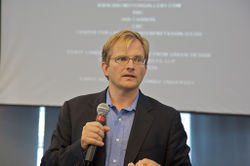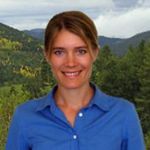GSSS 2016-Faculty: Difference between revisions
From Santa Fe Institute Events Wiki
No edit summary |
No edit summary |
||
| (14 intermediate revisions by the same user not shown) | |||
| Line 21: | Line 21: | ||
Professor Cagney's work examines social inequality and its relationship to health with a focus on neighborhood, race, and aging and the life course. She has developed a series of papers on neighborhood social capital and its relationship to outcomes such as self-rated health, asthma prevalence, physical activity, and mortality during the 1995 Chicago heat wave. She also focuses on the validity of such measures and the development of new neighborhood-based metrics that reflect the perceptions and experiences of older residents. Currently she works on two Chicago-based studies of neighborhood context and older adult health, and is examining the role of the social and physical environment in older adult well-being with the National Social Life, Health, and Aging Project. <br> | Professor Cagney's work examines social inequality and its relationship to health with a focus on neighborhood, race, and aging and the life course. She has developed a series of papers on neighborhood social capital and its relationship to outcomes such as self-rated health, asthma prevalence, physical activity, and mortality during the 1995 Chicago heat wave. She also focuses on the validity of such measures and the development of new neighborhood-based metrics that reflect the perceptions and experiences of older residents. Currently she works on two Chicago-based studies of neighborhood context and older adult health, and is examining the role of the social and physical environment in older adult well-being with the National Social Life, Health, and Aging Project. <br> | ||
[[Image:Christian Casillas.jpg|150px|{border}]]<br> | |||
'''Christian Casillas, The challenge of estimating community GHG emissions'''<br> | |||
Christian Casillas is a native of Santa Fe, whose work focuses on collaborating to build learning and infrastructure systems that increase environmentally and socially sustainable choices for communities. Christian has expertise in engineering, policy, economics, and environmental aspects of renewable energy, in both urban and rural contexts, as well as community learning pedagogy and processes. <br> | |||
[[Image:Khoo Teng Chye.jpg|150px|{border}]]<br> | |||
'''[http://lkyspp.nus.edu.sg/faculty/khoo-teng-chye/ Khoo Teng Chye]''' - High Liveable and High Density Urban Development – A Singapore Story<br> | |||
Executive Director, Centre for Liveable Cities <br> | |||
Adjunct Professor, Lee Kuan Yew School of Public Policy <br> | |||
Mr. Khoo Teng Chye is the Executive Director for Centre for Liveable Cities since July 2010. He is concurrently the Chairman of Singapore International Water Week Pte Ltd since August 2009. He sits on the Boards of Tropical Marine Science Institute of National University of Singapore and the Director, International Desalination Association. He is also a member of the Advisory Committee and Adjunct Professor for the Nanyang Technological University School of Civil & Environmental Engineering, a member of the International Advisory Panel for the Institute of Water Policy and the Adjunct Professor under the Lee Kuan Yew School of Public Policy, National University of Singapore, a member of the Singapore Quality Award (SQA) Governing Council, SPRING Singapore. | |||
He was the Chief Executive, Board Member of PUB from December 2003 to December 2011. He was the Chief Executive Officer/Chief Planner from 1992 to 1996 at Urban Redevelopment Authority. He headed PSA Corporation as its Chief Executive Officer/Group President between 1996 and 2002, and Mapletree Investments as its President and Chief Executive Officer from 2002 to 2003. He was the Managing Director (Special Projects) of Temasek Holdings in 2003. <br> | |||
[[Image:audreydngsss.jpg|150px|{border}]]<br> | |||
'''[http://www.imperial.ac.uk/people/anazelle Audrey de Nazelle],''' Air Pollution in Cities and Impacts on Health <br> | |||
Audrey de Nazelle recently joined the Centre for Environmental Policy, Imperial College London, as a lecturer in air pollution management. She is an expert in risk assessment and exposure science. Her research is at the intersection of environmental sciences, health behaviour, transportation, and urban planning. Her work aims at guiding decision makers towards health-promoting built environments and policies. It involves novel and holistic approaches to assessing behavioral, environmental and health impacts of urban plans and policies. She conducted her postdoctoral research at the Centre for Environmental Epidemiology (CREAL) in Barcelona, Spain, where she developed and lead the European study Transportation Air Pollution and Physical ActivitieS: and Integrated Health Risk Assessment Programme of Climate Change and Urban Policies (TAPAS). She holds a PhD and an MS from the University of North Carolina at Chapel Hill in Environmental Sciences and Engineering (UNC - ESE), and a Maîtrise in Mathematics from the University of Paris VI Pierre et Marie Curie. Dr de Nazelle currently leads the London-based case study for the EU-FP7 project Physical Activity through Sustainable Transport Approaches (PASTA). She supervises two PhD students working on the project: Esther Anaya and Juan Pablo Orjuela. If you live in London, Antwerp, Barcelona, Örebro, Rome, Vienna or Zurich, please take part in the PASTA survey. Dr de Nazelle is the PI for the Behavioural Change for Urban Sustainability (BeCUS) study, for which she is currently seeking to extend the pilot-seed funding. <br> | |||
[[Image:mariond.jpg|150px|{border}]]<br> | |||
'''[http://www.santafe.edu/about/people/profile/Marion%20Dumas Marion Dumas]''' <br> | |||
Santa Fe Institute <br> | |||
Marion seeks to understand how institutions work and how they shape social change. The questions she asks about institutions and about mechanisms of social change are motivated by the challenges of sustainability, which she sees as a problem of collective adaptation to a complex environment. Thus she seeks to characterize the adaptive capacity of societies as shaped by their institutions. | |||
[[Image:dunnegsss.jpg|150px|{border}]]<br> | [[Image:dunnegsss.jpg|150px|{border}]]<br> | ||
'''[http://www.santafe.edu/about/people/profile/Jennifer%20A.%20Dunne Jennifer Dunne],''' Ecological Networks in the Arctic <br> | '''[http://www.santafe.edu/about/people/profile/Jennifer%20A.%20Dunne Jennifer Dunne],''' Ecological Networks in the Arctic <br> | ||
Jennifer A. Dunne is the Vice President for Science at the Santa Fe Institute, where she has been on the faculty since 2007. Jennifer received an A.B. from Harvard where she studied philosophy, an M.A. in biology from San Francisco State University, a Ph.D. in Energy and Resources from UC Berkeley, and an NSF Postdoctoral Fellowship in Biological Informatics. As Vice President for Science, Jennifer manages all science-related activities at SFI, including the resident and external faculty, postdoctoral programs, seminar series, scientific visitors, working groups and workshops, sponsored research, and communications. | Jennifer A. Dunne is the Vice President for Science at the Santa Fe Institute, where she has been on the faculty since 2007. Jennifer received an A.B. from Harvard where she studied philosophy, an M.A. in biology from San Francisco State University, a Ph.D. in Energy and Resources from UC Berkeley, and an NSF Postdoctoral Fellowship in Biological Informatics. As Vice President for Science, Jennifer manages all science-related activities at SFI, including the resident and external faculty, postdoctoral programs, seminar series, scientific visitors, working groups and workshops, sponsored research, and communications. | ||
| Line 36: | Line 63: | ||
Originally from Charleston, SC, Sean attended Princeton University where he received a BSE in Civil Engineering. After working for many years in San Francisco and abroad as a computer programmer, e-commerce strategy consultant, and Linux systems administrator, he enrolled in a doctoral program in Engineering and Public Policy at Carnegie Mellon University to learn how to apply his IT skills to the types of problems that first intrigued him in his undergraduate studies. He completed a post-doctoral fellowship in applied machine learning at the Institute for Health Metrics and Evaluation and subsequently worked as a Program Officer in the Special Initiatives team at the Bill & Melinda Gates Foundation. Sean is currently the Interim CEO of the Waste to Resource Fund, a UK charity that promotes pro-poor, sustainable solid waste management and green energy in secondary cities in Asia. He lives in Seattle, WA. <br> | Originally from Charleston, SC, Sean attended Princeton University where he received a BSE in Civil Engineering. After working for many years in San Francisco and abroad as a computer programmer, e-commerce strategy consultant, and Linux systems administrator, he enrolled in a doctoral program in Engineering and Public Policy at Carnegie Mellon University to learn how to apply his IT skills to the types of problems that first intrigued him in his undergraduate studies. He completed a post-doctoral fellowship in applied machine learning at the Institute for Health Metrics and Evaluation and subsequently worked as a Program Officer in the Special Initiatives team at the Bill & Melinda Gates Foundation. Sean is currently the Interim CEO of the Waste to Resource Fund, a UK charity that promotes pro-poor, sustainable solid waste management and green energy in secondary cities in Asia. He lives in Seattle, WA. <br> | ||
[[Image: | [[Image:Chris Kennedy.jpg|150px|{border}]]<br> | ||
'''[ | '''[https://www.uvic.ca/engineering/civil/faculty_and_staff/faculty/ckennedy.php Christopher Kennedy] <br> Professor and Chair - University of Victoria Civil Engineering <br> | ||
I apply principles of Industrial Ecology to challenges of developing sustainable cities and global infrastructure systems. Much of my work has involved the study of urban metabolism – the energy and material flows through cities – which underlies greenhouse gas emissions and other environmental impacts of cites. I also draw upon qualifications in Civil Engineering, Economics and Business to advise on policies and planning for sustainable infrastructure. | |||
Clients have included the governments of Canada, China, Saudi Arabia; UAE, and the UK, as well as the World Bank, Ontario Ministry of Finance, and others. In 2011/12, I was seconded to the OECD in Paris, to work on Cities, Green Growth and Policies for Encouraging Investment in Low Carbon Infrastructure. I have been a visiting professor at Oxford University and ETH Zürich. Currently I serve as President of the International Society for Industrial Ecology. I am also a Senior Fellow at the Global Cities Institute and author of The Evolution of Great World Cities: Urban Wealth and Economic Growth. <br> | |||
[[Image:Edward Mazria.jpg|150px|{border}]]<br> | [[Image:Edward Mazria.jpg|150px|{border}]]<br> | ||
''' | '''[http://architecture2030.org/about/leadership/ Edward Mazria],''' (Founder/CEO - Architecture 2030) - The Energy Transformation Necessary for Buildings <br> | ||
Edward Mazria is an internationally recognized architect, author, researcher, and educator. Over the past decade, his seminal research into the sustainability, resilience, energy consumption, and greenhouse gas emissions of the built environment has redefined the role of architecture, planning, design, and building, in reshaping our world. He is the founder of Architecture 2030, a think tank developing real-world solutions for 21st century problems. | Edward Mazria is an internationally recognized architect, author, researcher, and educator. Over the past decade, his seminal research into the sustainability, resilience, energy consumption, and greenhouse gas emissions of the built environment has redefined the role of architecture, planning, design, and building, in reshaping our world. He is the founder of Architecture 2030, a think tank developing real-world solutions for 21st century problems. | ||
Throughout his 40-year career, Mazria’s architectural work, research, and innovations have influenced the way we design and build. Early in his career, he authored The Passive Solar Energy Book, which helped introduce the world to solar design. Mazria issued the 2030 Challenge, and recently introduced the 2030 Palette, a revolutionary new platform that puts the principles behind low-carbon/zero carbon and resilient built environments at the fingertips of architects, planners, and designers worldwide. in 2014 he issued the Roadmap to Zero Emissions at the Organization of Economic Cooperation and Development (OECD) and UN Framework Convention on Climate Change (UNFCCC) calling zero emissions in the built environment by 2050; and the 2050 Imperative that has been adopted by professional organizations representing over 1.3 million architects in 124 countries worldwide. And recently, he developed The Urban Climate Initiative, a framework of incremental actions that governments can put in place to ensure carbon neutral built environments by the year 2050. | Throughout his 40-year career, Mazria’s architectural work, research, and innovations have influenced the way we design and build. Early in his career, he authored The Passive Solar Energy Book, which helped introduce the world to solar design. Mazria issued the 2030 Challenge, and recently introduced the 2030 Palette, a revolutionary new platform that puts the principles behind low-carbon/zero carbon and resilient built environments at the fingertips of architects, planners, and designers worldwide. in 2014 he issued the Roadmap to Zero Emissions at the Organization of Economic Cooperation and Development (OECD) and UN Framework Convention on Climate Change (UNFCCC) calling zero emissions in the built environment by 2050; and the 2050 Imperative that has been adopted by professional organizations representing over 1.3 million architects in 124 countries worldwide. And recently, he developed The Urban Climate Initiative, a framework of incremental actions that governments can put in place to ensure carbon neutral built environments by the year 2050. | ||
[[Image:newmangsss.jpg|150px|{border}]]<br> | |||
'''[http://www.crcsi.com.au/about/our-people/prof-peter-newman/ Peter Newman],''' Urban Sustainability <br> | |||
Peter Newman is the Professor of Sustainability at Curtin University .He sat on the Board of Infrastructure Australia and is a Lead Author for Transport on the IPCC. His books include ‘Green Urbanism in Asia’ (2013), ‘Resilient Cities: Responding to Peak Oil and Climate Change’(2009), ‘Green Urbanism Down Under’ (2009) and 'Sustainability and Cities: Overcoming Automobile Dependence' with Jeff Kenworthy which was launched in the White House in 1999. In 2001-3 Peter directed the production of Western Australia’s Sustainability Strategy in the Department of the Premier and Cabinet. In 2004-5 he was a Sustainability Commissioner in Sydney advising the government on planning and transport issues. In 2006/7 he was a Fulbright Senior Scholar at the University of Virginia Charlottesville. In 2011 Peter was awarded the Sidney Luker medal by the Planning Institute of Australia (NSW) for his contribution to the science and practice of town planning in Australia and in 2014 he was awarded an Order of Australia for his contributions to urban design and sustainable transport, particularly related to the saving and rebuilding of Perth’s rail system. He was an elected Fremantle City Councillor from 1976-80 where he still lives. <br> | |||
[[Image:obriengsss.jpg|150px|{border}]]<br> | [[Image:obriengsss.jpg|150px|{border}]]<br> | ||
| Line 58: | Line 87: | ||
Dan O’Brien joined the Northeastern faculty in 2014 from Harvard University where he was the research director for the Boston Area Research Initiative. In this role he led and coordinated a range of interdisciplinary projects that bring together local researchers, policymakers, and practitioners in the study of Boston. His research uses large, administrative data sets (i.e., “Big Data”) in conjunction with traditional methodologies to explore the behavioral and social dynamics of urban neighborhoods, particularly surrounding “broken windows theory.” Much of his current work builds on a recent paper, “Ecometrics in the Age of Big Data,” (co-authored with Robert J. Sampson and Christopher Winship) that presents a methodology for measuring neighborhood characteristics in the digital age.<br> | Dan O’Brien joined the Northeastern faculty in 2014 from Harvard University where he was the research director for the Boston Area Research Initiative. In this role he led and coordinated a range of interdisciplinary projects that bring together local researchers, policymakers, and practitioners in the study of Boston. His research uses large, administrative data sets (i.e., “Big Data”) in conjunction with traditional methodologies to explore the behavioral and social dynamics of urban neighborhoods, particularly surrounding “broken windows theory.” Much of his current work builds on a recent paper, “Ecometrics in the Age of Big Data,” (co-authored with Robert J. Sampson and Christopher Winship) that presents a methodology for measuring neighborhood characteristics in the digital age.<br> | ||
[[Image: | [[Image:Matt Petersen.jpg|250px|{border}]]<br> | ||
'''[ | '''[https://www.linkedin.com/in/matt-petersen-0771691?authType=name&authToken=ZhhI Matt Petersen]''' <br> | ||
Matt Petersen currently serves as the Chief Sustainability Officer for the City of Los Angeles. He was appointed to the position by Los Angeles Mayor Eric Garcetti. | |||
As L.A.'s first CSO, Petersen is the chief architect of the [http://lamayor.org/plan Sustainable City pLAn] which is a roadmap for a L.A. that is environmentally healthy, economically prosperous, and equitable in opportunity for all. Working with his colleagues in the Mayor's office, City departmental heads, and the 27 Departmental CSOs, Petersen is responsible for the implementation of the pLAn's outcomes and targets set for 2017, 2025, and 2035. | |||
Prior to becoming CSO, Petersen served as Global Green USA President, CEO and board member where he led the organization for 19 years. In the aftermath of the Gulf Coast hurricanes, Petersen put forth a vision and mobilized resources to green the rebuilding of New Orleans' schools, Lower 9th Ward, and more. | |||
Petersen is a board member of Global Green USA, Habitat for Humanity of Greater Los Angeles, and the Sir Edmund Hilary Institute for International Leadership. Petersen is also a member of the Council on Foreign Relations. | |||
<br> | |||
[[Image:trancikgsss.jpg|150px|{border}]]<br> | [[Image:trancikgsss.jpg|150px|{border}]]<br> | ||
| Line 81: | Line 104: | ||
External Professor, Science Steering Committee, Santa Fe Institute <br> | External Professor, Science Steering Committee, Santa Fe Institute <br> | ||
Atlantic Richfield Career Development | Jessika Trancik is the Atlantic Richfield Career Development Associate Professor in Energy Studies at the Institute for Data, Systems and Society (IDSS) at the Massachusetts Institute of Technology. She is also an external professor at the Santa Fe Institute. She received her B.S. in materials science and engineering from Cornell University and her Ph.D. in materials science from the University of Oxford as a Rhodes Scholar. Before MIT, she spent several years at the Santa Fe Institute as an Omidyar Fellow, and at Columbia University as an Earth Institute Fellow, where her research focused on energy systems modeling. Her research group studies the dynamic costs and environmental impacts of energy technologies to inform technology design and policy.<br> | ||
[http://trancik.scripts.mit.edu/home/ Homepage]<br><br> | |||
<[[Image:gwest2.jpg|150px|{border}]]<br> | |||
[http://santafe.edu/about/people/profile/Geoffrey%20West Geoffrey West], A Unifying Framework for the Dynamics and Structure of Organisms, Ecosystems, Cities and Companies <br><br> | |||
Geoffrey West is a theoretical physicist whose primary interests have been in fundamental questions in physics, especially those concerning the elementary particles, their interactions and cosmological implications. West served as SFI President from July 2005 through July 2009. Prior to joining the Santa Fe Institute as a Distinguished Professor in 2003, he was the leader, and founder, of the high energy physics group at Los Alamos National Laboratory, where he is one of only approximately ten Senior Fellows.<br> | |||
Latest revision as of 16:42, 29 July 2016
| GSSS 2016 |
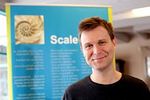
Luis Bettencourt, GSSS Director
Luís M. A. Bettencourt is a Professor of Complex Systems at the Santa Fe Institute He was trained as a theoretical physicist and obtained his PhD from Imperial College (University of London, UK) in 1996, for research in statistical and high-energy physics models of the early Universe. He has held postdoctoral positions at the University of Heidelberg (Germany), Los Alamos National Laboratory (Director’s Fellow and Slansky Fellow) and at MIT (Center for Theoretical Physics). He has worked extensively on cities and urbanization. His research emphasizes the creation of new interdisciplinary synthesis to describe cities in quantitative and predictive ways, informed by the growing availability of empirical data worldwide. His research interests also include the modeling of innovation and sustainability in developing human societies, the dynamics of infectious diseases and aspects of general information processing in complex systems. He is particularly interested in the interplay between information, structure and scale in setting the properties of diverse complex systems.
He is the author of over 80 scientific papers and several edited books. He regularly reviews papers for leading journals in Interdisciplinary Science, Physics, Urban Studies, Neuroscience, Epidemiology, Computer Science and Applied Mathematics.
His research has been featured worldwide, including in The New York Times, Scientific American, Nature, National Public Radio, the Economist, Harvard Business Review, Wired, the New Scientist, and SEED magazine.
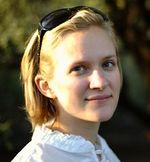
Christa Brelsford, Water and Socioeconomics
Santa Fe Institute Postdoctoral Fellow
Christa recently completed a Ph.D. at the School of Sustainability at Arizona State University, focusing on evaluating the effectiveness of water conservation policy in Las Vegas, Nevada. Before that, she earned an M.A. degree in the Climate and Society program and a B.S. in Civil Engineering, both from Columbia University. She also has a B.A. in liberal studies from Bard College at Simon's Rock.

Kathleen Cagney, Health and Sociology
Professor Cagney's work examines social inequality and its relationship to health with a focus on neighborhood, race, and aging and the life course. She has developed a series of papers on neighborhood social capital and its relationship to outcomes such as self-rated health, asthma prevalence, physical activity, and mortality during the 1995 Chicago heat wave. She also focuses on the validity of such measures and the development of new neighborhood-based metrics that reflect the perceptions and experiences of older residents. Currently she works on two Chicago-based studies of neighborhood context and older adult health, and is examining the role of the social and physical environment in older adult well-being with the National Social Life, Health, and Aging Project.
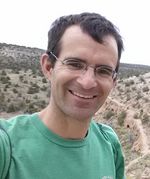
Christian Casillas, The challenge of estimating community GHG emissions
Christian Casillas is a native of Santa Fe, whose work focuses on collaborating to build learning and infrastructure systems that increase environmentally and socially sustainable choices for communities. Christian has expertise in engineering, policy, economics, and environmental aspects of renewable energy, in both urban and rural contexts, as well as community learning pedagogy and processes.
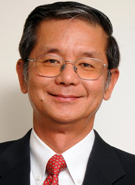
Khoo Teng Chye - High Liveable and High Density Urban Development – A Singapore Story
Executive Director, Centre for Liveable Cities
Adjunct Professor, Lee Kuan Yew School of Public Policy
Mr. Khoo Teng Chye is the Executive Director for Centre for Liveable Cities since July 2010. He is concurrently the Chairman of Singapore International Water Week Pte Ltd since August 2009. He sits on the Boards of Tropical Marine Science Institute of National University of Singapore and the Director, International Desalination Association. He is also a member of the Advisory Committee and Adjunct Professor for the Nanyang Technological University School of Civil & Environmental Engineering, a member of the International Advisory Panel for the Institute of Water Policy and the Adjunct Professor under the Lee Kuan Yew School of Public Policy, National University of Singapore, a member of the Singapore Quality Award (SQA) Governing Council, SPRING Singapore.
He was the Chief Executive, Board Member of PUB from December 2003 to December 2011. He was the Chief Executive Officer/Chief Planner from 1992 to 1996 at Urban Redevelopment Authority. He headed PSA Corporation as its Chief Executive Officer/Group President between 1996 and 2002, and Mapletree Investments as its President and Chief Executive Officer from 2002 to 2003. He was the Managing Director (Special Projects) of Temasek Holdings in 2003.
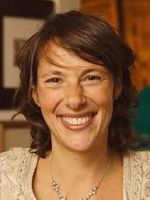
Audrey de Nazelle, Air Pollution in Cities and Impacts on Health
Audrey de Nazelle recently joined the Centre for Environmental Policy, Imperial College London, as a lecturer in air pollution management. She is an expert in risk assessment and exposure science. Her research is at the intersection of environmental sciences, health behaviour, transportation, and urban planning. Her work aims at guiding decision makers towards health-promoting built environments and policies. It involves novel and holistic approaches to assessing behavioral, environmental and health impacts of urban plans and policies. She conducted her postdoctoral research at the Centre for Environmental Epidemiology (CREAL) in Barcelona, Spain, where she developed and lead the European study Transportation Air Pollution and Physical ActivitieS: and Integrated Health Risk Assessment Programme of Climate Change and Urban Policies (TAPAS). She holds a PhD and an MS from the University of North Carolina at Chapel Hill in Environmental Sciences and Engineering (UNC - ESE), and a Maîtrise in Mathematics from the University of Paris VI Pierre et Marie Curie. Dr de Nazelle currently leads the London-based case study for the EU-FP7 project Physical Activity through Sustainable Transport Approaches (PASTA). She supervises two PhD students working on the project: Esther Anaya and Juan Pablo Orjuela. If you live in London, Antwerp, Barcelona, Örebro, Rome, Vienna or Zurich, please take part in the PASTA survey. Dr de Nazelle is the PI for the Behavioural Change for Urban Sustainability (BeCUS) study, for which she is currently seeking to extend the pilot-seed funding.
Santa Fe Institute
Marion seeks to understand how institutions work and how they shape social change. The questions she asks about institutions and about mechanisms of social change are motivated by the challenges of sustainability, which she sees as a problem of collective adaptation to a complex environment. Thus she seeks to characterize the adaptive capacity of societies as shaped by their institutions.
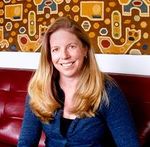
Jennifer Dunne, Ecological Networks in the Arctic
Jennifer A. Dunne is the Vice President for Science at the Santa Fe Institute, where she has been on the faculty since 2007. Jennifer received an A.B. from Harvard where she studied philosophy, an M.A. in biology from San Francisco State University, a Ph.D. in Energy and Resources from UC Berkeley, and an NSF Postdoctoral Fellowship in Biological Informatics. As Vice President for Science, Jennifer manages all science-related activities at SFI, including the resident and external faculty, postdoctoral programs, seminar series, scientific visitors, working groups and workshops, sponsored research, and communications.
Jennifer’s research interests are in analysis, modeling, and theory related to the organization, dynamics, and function of ecosystems. Much of this work focuses on ecological networks, in particular food webs, which specify the complex feeding interactions among species in a given habitat. Food webs provide a way to track and quantify the flow of energy and resources in ecosystems and thus play a central role in ecological and evolutionary dynamics. Drawing on cross-system analysis and computational modeling, Jennifer and her collaborators seek to identify fundamental patterns and principles of ecological network structure and dynamics at multiple spatial and temporal scales. Such research provides a useful framework for understanding the coexistence of species and the robustness, persistence, and stability of ecosystems, including how humans fit into and impact ancient, historic, and current ecosystems. In addition to basic research, Jennifer and her collaborators develop ecoinformatic technologies to facilitate sharing, synthesis, visualization, analysis, and modeling of data related to biocomplexity research.
Jennifer’s publications have appeared in journals such as Proceedings of the National Academy of Sciences USA, Trends in Ecology and Evolution, PLoS Biology, Philosophical Transactions of the Royal Society B, Proceedings of the Royal Society B, Ecology Letters, Ecology, and Ecological Monographs. Her work has been covered in media outlets including Scientific American, Wired, SmartPlanet, ScienceNow, and Nature News. She serves as an editor at Ecology Letters and the Journal of Complex Networks, is a series editor for the Oxford Series in Ecology and Evolution, and is on the advisory board of the new science and culture magazine Nautilus.
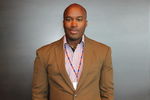
Sean Green, Technology and Social Dynamics
Originally from Charleston, SC, Sean attended Princeton University where he received a BSE in Civil Engineering. After working for many years in San Francisco and abroad as a computer programmer, e-commerce strategy consultant, and Linux systems administrator, he enrolled in a doctoral program in Engineering and Public Policy at Carnegie Mellon University to learn how to apply his IT skills to the types of problems that first intrigued him in his undergraduate studies. He completed a post-doctoral fellowship in applied machine learning at the Institute for Health Metrics and Evaluation and subsequently worked as a Program Officer in the Special Initiatives team at the Bill & Melinda Gates Foundation. Sean is currently the Interim CEO of the Waste to Resource Fund, a UK charity that promotes pro-poor, sustainable solid waste management and green energy in secondary cities in Asia. He lives in Seattle, WA.
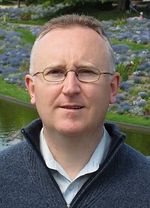
Christopher Kennedy
Professor and Chair - University of Victoria Civil Engineering
I apply principles of Industrial Ecology to challenges of developing sustainable cities and global infrastructure systems. Much of my work has involved the study of urban metabolism – the energy and material flows through cities – which underlies greenhouse gas emissions and other environmental impacts of cites. I also draw upon qualifications in Civil Engineering, Economics and Business to advise on policies and planning for sustainable infrastructure.
Clients have included the governments of Canada, China, Saudi Arabia; UAE, and the UK, as well as the World Bank, Ontario Ministry of Finance, and others. In 2011/12, I was seconded to the OECD in Paris, to work on Cities, Green Growth and Policies for Encouraging Investment in Low Carbon Infrastructure. I have been a visiting professor at Oxford University and ETH Zürich. Currently I serve as President of the International Society for Industrial Ecology. I am also a Senior Fellow at the Global Cities Institute and author of The Evolution of Great World Cities: Urban Wealth and Economic Growth.
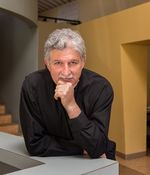
Edward Mazria, (Founder/CEO - Architecture 2030) - The Energy Transformation Necessary for Buildings
Edward Mazria is an internationally recognized architect, author, researcher, and educator. Over the past decade, his seminal research into the sustainability, resilience, energy consumption, and greenhouse gas emissions of the built environment has redefined the role of architecture, planning, design, and building, in reshaping our world. He is the founder of Architecture 2030, a think tank developing real-world solutions for 21st century problems.
Throughout his 40-year career, Mazria’s architectural work, research, and innovations have influenced the way we design and build. Early in his career, he authored The Passive Solar Energy Book, which helped introduce the world to solar design. Mazria issued the 2030 Challenge, and recently introduced the 2030 Palette, a revolutionary new platform that puts the principles behind low-carbon/zero carbon and resilient built environments at the fingertips of architects, planners, and designers worldwide. in 2014 he issued the Roadmap to Zero Emissions at the Organization of Economic Cooperation and Development (OECD) and UN Framework Convention on Climate Change (UNFCCC) calling zero emissions in the built environment by 2050; and the 2050 Imperative that has been adopted by professional organizations representing over 1.3 million architects in 124 countries worldwide. And recently, he developed The Urban Climate Initiative, a framework of incremental actions that governments can put in place to ensure carbon neutral built environments by the year 2050.
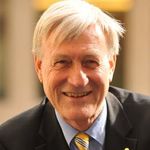
Peter Newman, Urban Sustainability
Peter Newman is the Professor of Sustainability at Curtin University .He sat on the Board of Infrastructure Australia and is a Lead Author for Transport on the IPCC. His books include ‘Green Urbanism in Asia’ (2013), ‘Resilient Cities: Responding to Peak Oil and Climate Change’(2009), ‘Green Urbanism Down Under’ (2009) and 'Sustainability and Cities: Overcoming Automobile Dependence' with Jeff Kenworthy which was launched in the White House in 1999. In 2001-3 Peter directed the production of Western Australia’s Sustainability Strategy in the Department of the Premier and Cabinet. In 2004-5 he was a Sustainability Commissioner in Sydney advising the government on planning and transport issues. In 2006/7 he was a Fulbright Senior Scholar at the University of Virginia Charlottesville. In 2011 Peter was awarded the Sidney Luker medal by the Planning Institute of Australia (NSW) for his contribution to the science and practice of town planning in Australia and in 2014 he was awarded an Order of Australia for his contributions to urban design and sustainable transport, particularly related to the saving and rebuilding of Perth’s rail system. He was an elected Fremantle City Councillor from 1976-80 where he still lives.
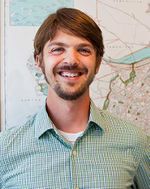
Dan O’Brien, Sociology and Big Data
Dan O’Brien joined the Northeastern faculty in 2014 from Harvard University where he was the research director for the Boston Area Research Initiative. In this role he led and coordinated a range of interdisciplinary projects that bring together local researchers, policymakers, and practitioners in the study of Boston. His research uses large, administrative data sets (i.e., “Big Data”) in conjunction with traditional methodologies to explore the behavioral and social dynamics of urban neighborhoods, particularly surrounding “broken windows theory.” Much of his current work builds on a recent paper, “Ecometrics in the Age of Big Data,” (co-authored with Robert J. Sampson and Christopher Winship) that presents a methodology for measuring neighborhood characteristics in the digital age.
Matt Petersen currently serves as the Chief Sustainability Officer for the City of Los Angeles. He was appointed to the position by Los Angeles Mayor Eric Garcetti.
As L.A.'s first CSO, Petersen is the chief architect of the Sustainable City pLAn which is a roadmap for a L.A. that is environmentally healthy, economically prosperous, and equitable in opportunity for all. Working with his colleagues in the Mayor's office, City departmental heads, and the 27 Departmental CSOs, Petersen is responsible for the implementation of the pLAn's outcomes and targets set for 2017, 2025, and 2035.
Prior to becoming CSO, Petersen served as Global Green USA President, CEO and board member where he led the organization for 19 years. In the aftermath of the Gulf Coast hurricanes, Petersen put forth a vision and mobilized resources to green the rebuilding of New Orleans' schools, Lower 9th Ward, and more.
Petersen is a board member of Global Green USA, Habitat for Humanity of Greater Los Angeles, and the Sir Edmund Hilary Institute for International Leadership. Petersen is also a member of the Council on Foreign Relations.
External Professor, Science Steering Committee, Santa Fe Institute
Jessika Trancik is the Atlantic Richfield Career Development Associate Professor in Energy Studies at the Institute for Data, Systems and Society (IDSS) at the Massachusetts Institute of Technology. She is also an external professor at the Santa Fe Institute. She received her B.S. in materials science and engineering from Cornell University and her Ph.D. in materials science from the University of Oxford as a Rhodes Scholar. Before MIT, she spent several years at the Santa Fe Institute as an Omidyar Fellow, and at Columbia University as an Earth Institute Fellow, where her research focused on energy systems modeling. Her research group studies the dynamic costs and environmental impacts of energy technologies to inform technology design and policy.
<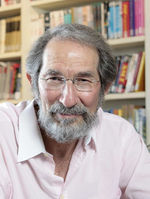
Geoffrey West, A Unifying Framework for the Dynamics and Structure of Organisms, Ecosystems, Cities and Companies
Geoffrey West is a theoretical physicist whose primary interests have been in fundamental questions in physics, especially those concerning the elementary particles, their interactions and cosmological implications. West served as SFI President from July 2005 through July 2009. Prior to joining the Santa Fe Institute as a Distinguished Professor in 2003, he was the leader, and founder, of the high energy physics group at Los Alamos National Laboratory, where he is one of only approximately ten Senior Fellows.


